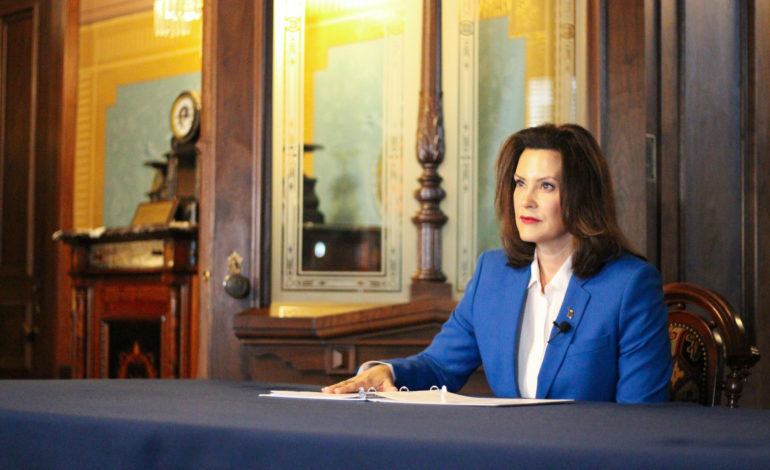LANSING — Governor Whitmer and the state legislature have come together on a bipartisan budget agreement for Fiscal Year 2022, which begins Oct. 1.
The general fund budget will total $11.8 billion and when combined with the school aid budget of $17 billion ($2 billion from federal sources), the full budget will provide $26.8 billion in state spending. With federal funding and other restricted revenues included, the full budget will total just $70 billion.
“I am thrilled that the legislature and I were able to come together to agree on a bipartisan budget,” Whitmer said. “Our collaboration is a testament to what’s possible when we work together and put our families, communities and small businesses first. The budget will make the biggest-ever one-time deposit into our rainy day fund, repair or replace nearly 100 bridges, expand childcare to 105,000 kids at low or no-cost, replace lead service lines, permanently raise pay for direct care workers and do so, so much more.”
Whitmer also said she looks forward to continuing to work together.
“I look forward to continuing in the spirit of collaboration to spend the billions in federal dollars we have available to us from the American Rescue Plan and the billions more we are expected to receive from the bipartisan federal infrastructure bill,” she said. “When we come together, we are capable of making incredible progress and I am proud that we got this done.”
The funding plan also includes $108.1 million that makes 105,000 more children eligible for child care by increasing income eligibility to 185 percent of the federal poverty level through fiscal year 2023, then 160 percent ongoing in the following fiscal years, $13 million to waive parent co-pays for childcare through fiscal year 2022, $158 million for an ongoing 30 percent rate increase for childcare providers with an additional $222 million for a temporary rate increase, $117.4 million to pay for enrollment in childcare through fiscal year 2023, $36.5 million over three years to expand the number of childcare spaces for infants and toddlers, $700.7 million for stabilization grants and another $100 million for startup grants for childcare providers, including technical assistance and facility improvements, $30 million for a one-time $1,000 bonus for childcare staff and $100 million for community revitalization and placemaking grants to support economic development in local communities.
When we come together, we are capable of making incredible progress and I am proud that we got this done. — Governor Gretchen Whitmer
“I am proud of this budget and the collaboration with the legislature to create a spending plan centered on transformational investments that will drive Michigan’s continued recovery,” State Budget Director David Massaron said. “This budget is going to help Michigan emerge as an even stronger state and it provides the type of investments that will foster real and lasting improvements to support Michigan’s families and businesses.”
The budget is also providing strong investments for the state’s infrastructure, including $196 million for local bridge bundling to repair or replace nearly 100 crumbling bridges in serious and critical condition, $14.3 million to help local governments prepare for climate change and extreme weather, including flooding and coastal erosion, $19 million for dam repairs and replacements to mitigate flooding and hazards caused by dam malfunctions and $3 million for the Michigan Infrastructure Council.
The budget also includes $7.3 million in increased funding to hire and train new corrections officers for the state’s prison system, more than $800,000 in new funding for wellness initiatives for corrections employees, Department of State Police investments of $3.8 million to expand the use of body cameras, $4.5 million for a professional development and training effort, $7.7 million for a trooper recruit school, $2.5 million for breathalyzer test replacements, a $2 million increase in secondary road patrol grants, $16 million for 911 system upgrades and $5 million to support local efforts to expand recruitment, improve training, and provide additional professional development to first responders.
The budget will also deposit $500 million into the Budget Stabilization Fund, bringing the total fund balance to nearly $1.4 billion, representing the largest rainy day fund balance in the state’s history.






Leave a Reply